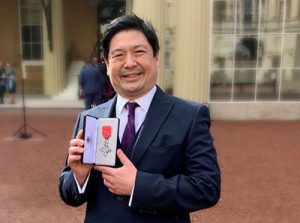The central role which GDC has as a regulator is to protect patient safety and to maintain public confidence in dental services. The onset of COVID-19 doesn’t change that, but it is changing – and will continue to change – how we do it in practice.
We know the impact this is having on the profession and the level of challenge and uncertainty involved. Many questions and concerns still remain unanswered, not least on the level of support which may be provided by government. We don’t want to add to that uncertainty and concern, and hope that the information provided here helps you understand what actions we are taking to provide help and clarity where we are able to.
Our approach is based on two core principles:
- Minimising the burden of time and attention we impose on registrants.
- Maximising the flexibility of registrants to manage their professional activities in response to the challenges of COVID-19.
That doesn’t mean that we can withdraw completely. There is still a vital role for regulation, and we are in any case limited in our ability to be flexible in some areas because of the constraints of the legislation under which we operate.
As we all know, circumstances are continuing to change rapidly. Our approaches will need to adapt as the situation changes, but we want to be as clear as we can be about how we are approaching the different areas of our work. So, the information below is as complete as we can currently make it, but it will inevitably need to be updated as the epidemic and its consequences unfold.
This sets out the position of the GDC as at Monday 23 March 2020.
Professional judgement
Expert advice on the clinical aspects of COVID-19 will continue to come from the health authorities of the four nations. We cannot create that advice – our role will be limited to providing clear signposting to all the current guidance we are aware of. That guidance inevitably doesn’t cover every possible set of circumstances, so professional judgement remains key when making decisions about providing – or not providing – treatment. We do not expect any dental professional to provide treatment unless, in their professional opinion, it is safe to do so for both patients and the dental team.
For our part, we will expect dental professionals to keep themselves aware of current guidance and to make decisions informed by it, but we won’t be looking to second guess judgements made on that basis.
Continuing professional development (CPD)
As a result of the restrictions in place, we share the concern we have heard about potential difficulties in meeting CPD requirements for this cycle year. We know that many face-to-face CPD activities have already been cancelled and that will no doubt continue over the coming months.
The five-year CPD cycle already offers a lot of flexibility. There is no requirement for CPD to take a particular form and perhaps more usefully in the current context, it’s perfectly acceptable to submit a return of zero hours, if 10 or more hours have been recorded the previous year. Our records suggest that over two thirds of dental care professionals (DCPs) who are due to make a declaration this summer will meet the requirement on that basis. So, a good starting point is to check what’s already recorded on eGDC to see if there is an immediate shortfall.
We will look sympathetically at the circumstances of anybody who is still left with a shortfall for the declaration they are due to make this year. Of course, there are options other than face to face CPD and the CPD Provider Guidance is available on our website for anyone wishing to know what is required for a CPD activity to meet the verifiable criteria. But to be absolutely clear: nobody will be removed from the register because of a lack of access to CPD during the crisis period.
Please email us with any queries or concerns about this to cenquiries@gdc-uk.org.
Joining the register
Thousands of students will have been due to complete their professional training over the coming months and then to register with GDC. Teaching and assessment are being severely disrupted, but we have been working with education providers to ensure that as many students as possible can still have a smooth transition into practice. We, and they, have prepared a joint statement setting out our shared approach, which has now been published on our website. This statement includes relevant contact details.
Returning to the register
Many will have seen the appeals to doctors, nurses and other healthcare professionals whose registration has lapsed to return to work, and we have been asked whether similar arrangements will be made for dental professionals.
The GMC has long had powers to give temporary registration in emergencies. The NMC, the HCPC and the social work regulators are being given similar powers in the emergency Coronavirus Bill, which is expected to pass through the House of Commons today. But the GDC doesn’t have – and is not currently in line to get – such a power, so as things currently stand the only route back onto the register which we can legally offer is by individual restoration.
We have been exchanging information with the Department of Health and Social Care on this, and it’s possible that that might change for the future, but that’s in their gift, not ours. We are though looking – within the constraints of the legislation – at whether we can streamline any of our processes and requirements.
Fitness to practise
Hearings
With the exception of the small number of cases, where there is an immediate perceived risk to patient safety, almost all fitness to practise hearings have now been postponed. We aim to run the urgent hearings remotely whenever possible so that we do not require participants to travel. We will contact all parties involved directly with information about how they participate.
Because we list substantive hearings up to nine months in advance, we will continue to schedule new referrals from Case Examiners. We will look to relist the postponed hearings once we are confident that we will be able to hold them in a safe and appropriate way.
Casework
This is not a time for fitness to practise cases to be a distraction – but even in current circumstances, people may have legitimate concerns, and it is important that they are able to raise them with us. If they do, the GDC is under a legal duty to investigate them. We will continue to record and make a risk assessment of new fitness to practise concerns and we will continue to progress new and existing cases as far as we can. As always, it’s worth remembering that a clear majority of cases are closed in the early stages of an investigation and only 15% of concerns are eventually referred to a practice committee for a hearing – so it’s in everybody’s interest not to leave cases hanging over registrants any longer than they have to.
Nevertheless, as far we can, we will keep requests for information to a minimum and in particular will avoid asking for information from the NHS unless there is an urgent, risk-based, need to do so. We appreciate that many people will have difficulty providing information to us for various reasons, and we will take a pragmatic and reasonable approach. If that’s likely to delay progress on a particular case, we will let all parties know and offer appropriate support.
Annual Retention Fee (ARF)
We are not yet clear on the government’s plans to support the sector and so it remains a real possibility that dental professionals will be under severe financial pressure in the coming months. Understandably, there are calls for us to waive the ARF payments which will be due from DCPs in July and from dentists in December.
We understand that dental professions are facing the likelihood of financial distress – however, that is not an issue that we able to solve by unilateral action. A solution to the financial pressure registrants are facing will require financial support from the government. Some of the provisions already announced by government to support businesses will have value for dental practices, and in some parts of the UK direct support has been given to NHS contract holders, but where appropriate we will join the discussion with government to help ensure that the particular needs and circumstances of all dental professionals, across both NHS and private practice, are understood.
What we can do and absolutely will do is continue to apply the rigour to our planning processes which allowed us to reduce the ARF for dentists last year by 24%. We will be looking again at our plans for the remainder of the year, with a view to delaying expenditure and stripping out cost.
Stefan Czerniawski
Executive Director, Strategy, GDC














